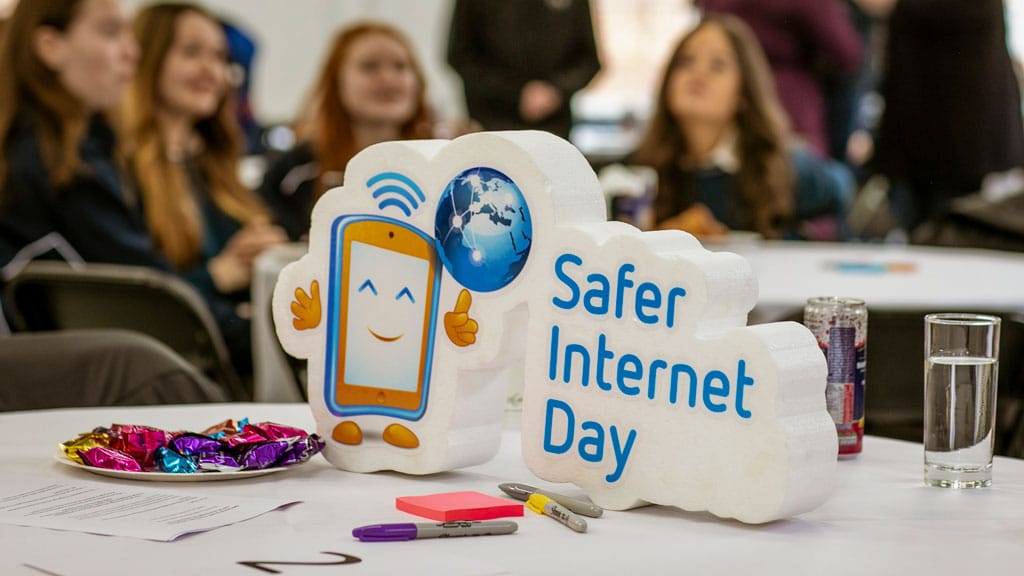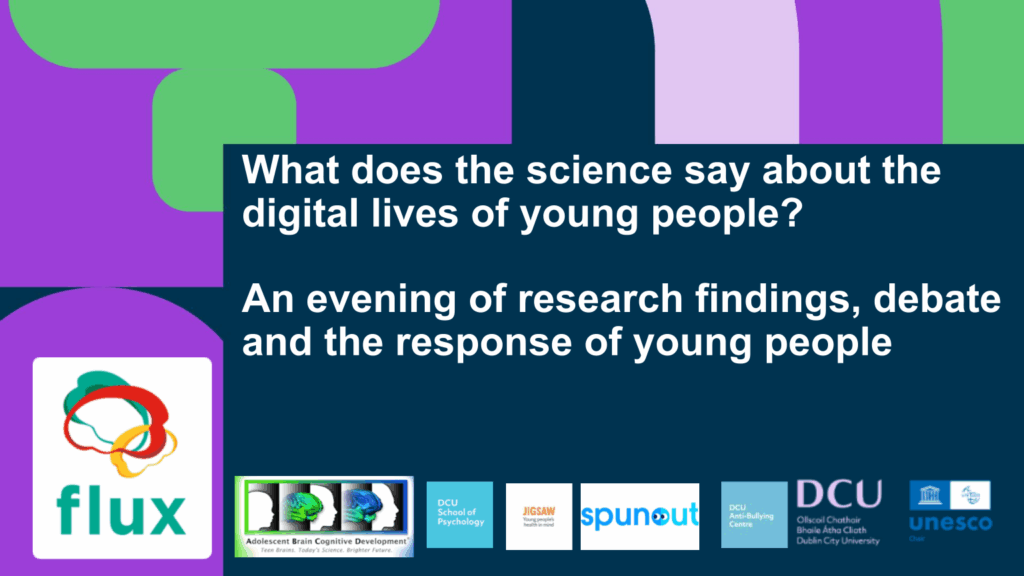This year marks the 20th anniversary of Safer Internet Day, which has become a worldwide event. This year the Irish Safer Internet Centre is calling on everyone to play their part in “Building Respect and Empathy Online”. There are many ways to get involved and raise awareness in the classroom or at home. Take part in the Safer Internet Day campaign on social media using the hashtags #SaferInternetDay and #SID2023.
DCU’s Anti-bullying Centre carried out a survey of teenagers recently on behalf of the Irish Internet Safety Awareness Centre. The survey focused on the behaviour of bystanders and revealed that:
- 45.3% witnessed some kind of mistreatment online recently, with most of the mistreatment happening at the hands of strangers.
- Among those who reported witnessing online mistreatment, 31.3% said a stranger started it and 25% said other strangers joined in.
- Of those surveyed, 22.9% of participants who witnessed online mistreatment had used at least one kind of privacy or reporting tool to help others.
Irish Safer Internet Centre Representatives said: “We are delighted to be back celebrating Safer Internet Day with an in-person event this year. Hosted by young people, today’s event welcomes, children, young people and supporters to discuss all things about/regarding online safety and in particular some of the key findings of the survey. The theme of the event is ‘building respect and empathy online’ which is more important now than ever. Our aim from today to develop better strategies and partnerships on education, awareness prevention, reporting, resolution, and effecting behavioural change.
“Ombudsman for Children Dr Niall Muldoon a sustained advocate for children’s rights, championing their safety in the digital environment, and guest speaker to the event, said: “I am delighted to support the encouragement of more conversations on the topic of respect, empathy and online bullying for this population of children. The #SilentWitness campaign launched today on Safer Internet Day 2023, which was developed by Webwise in close consultation with young people and drawing from the latest survey findings, is an excellent way to kick-start those conversations. The campaign is a series of three short films aiming to get children and adults talking inside and outside the classroom, within families, amongst peers, and in the wider community around the topic of online bullying and actions that can be taken.”
Prachi Agrawal (17), Webwise Youth Panellist said:
“When you teach people about digital wellbeing you should also teach them about tolerance and acceptance from a young age. When you instil values of respect, respecting other people’s opinions, cultures, sexuality, religions…you’re instilling a skill that people hold throughout their life.”
Minister for Education Norma Foley T.D. said:
“Safer Internet Day is fast becoming a key part in the school calendar and this 20th anniversary is another key milestone.
“We will continue to support learners and school communities to ensure their online experience is a safe one. Just two months ago I published Cineáltas: Action Plan on Bullying which places a significant emphasis on cyber-bullying and seeks to ensure that our schools are safe and happy places for all our children and young people.
“I would encourage teachers and parents to examine the wide range of resources available to students through Webwise which promotes safer and better internet use.”
Safer Internet Day in Ireland is coordinated by the Irish Safer Internet Centre, a partnership between Webwise, ISPCC, National Parents Council Primary and Hotline.ie, providing a range of complementary online safety services, including an education and awareness centre, child and parent helplines and a hotline. The Centre is coordinated by the Department of Justice and co-funded by the European Union.
The Bystander Behaviour Online report will be published at the end of March.
Get Involved In The Classroom
The STAR SEND Toolkit is an online safety toolkit for teachers to deliver to young people aged 11-16 with special educational needs and disabilities.
Managing your online reputation
Ensure your online experience is a positive one with these tips to managing your reputation online
How to spot fake news
Fake news is easy to spot when you know the signs. With our useful checklist, you can figure out what can be believed online.
Dealing with cyberbullying
You can take control by not putting up with offensive content and by reporting it when you come across it. Here are some ways you can respond to unwanted messages.
4 tips to spot a catfish
Worried someone you are talking to online isn’t who they say they are? Here are a few things to look out for.
For more resources for primary and secondary schools, check out Webwise.
Photographs by Webwise.







